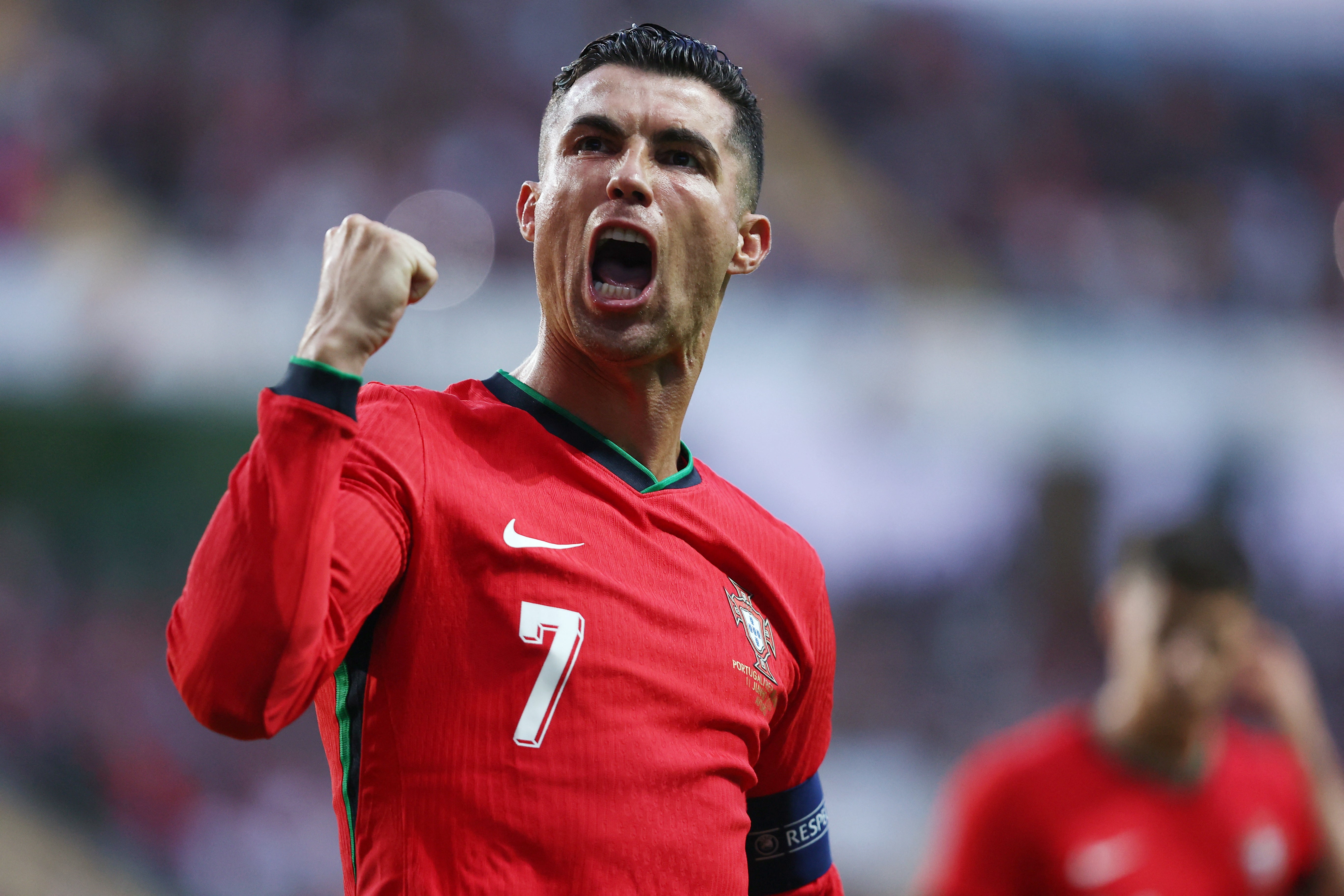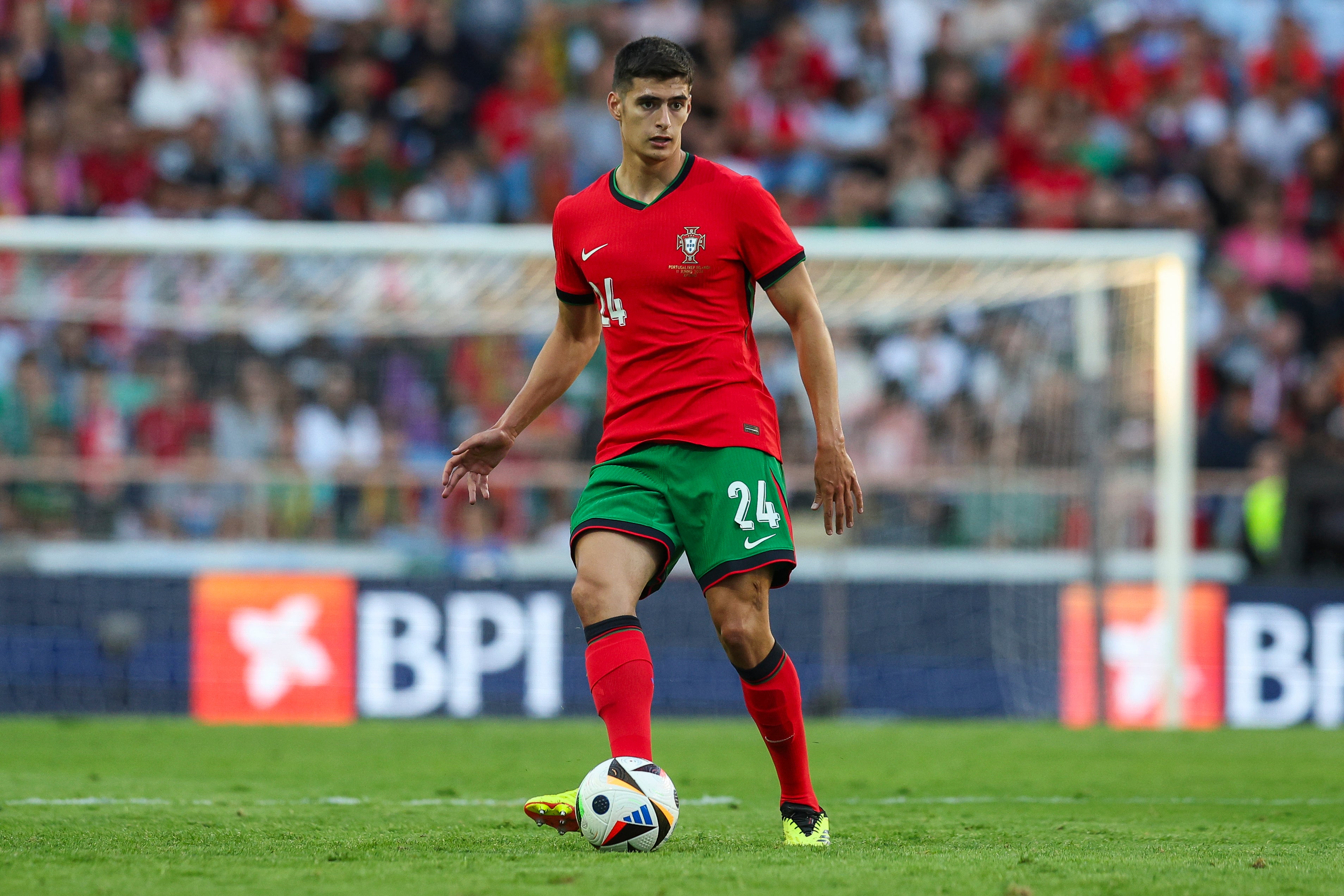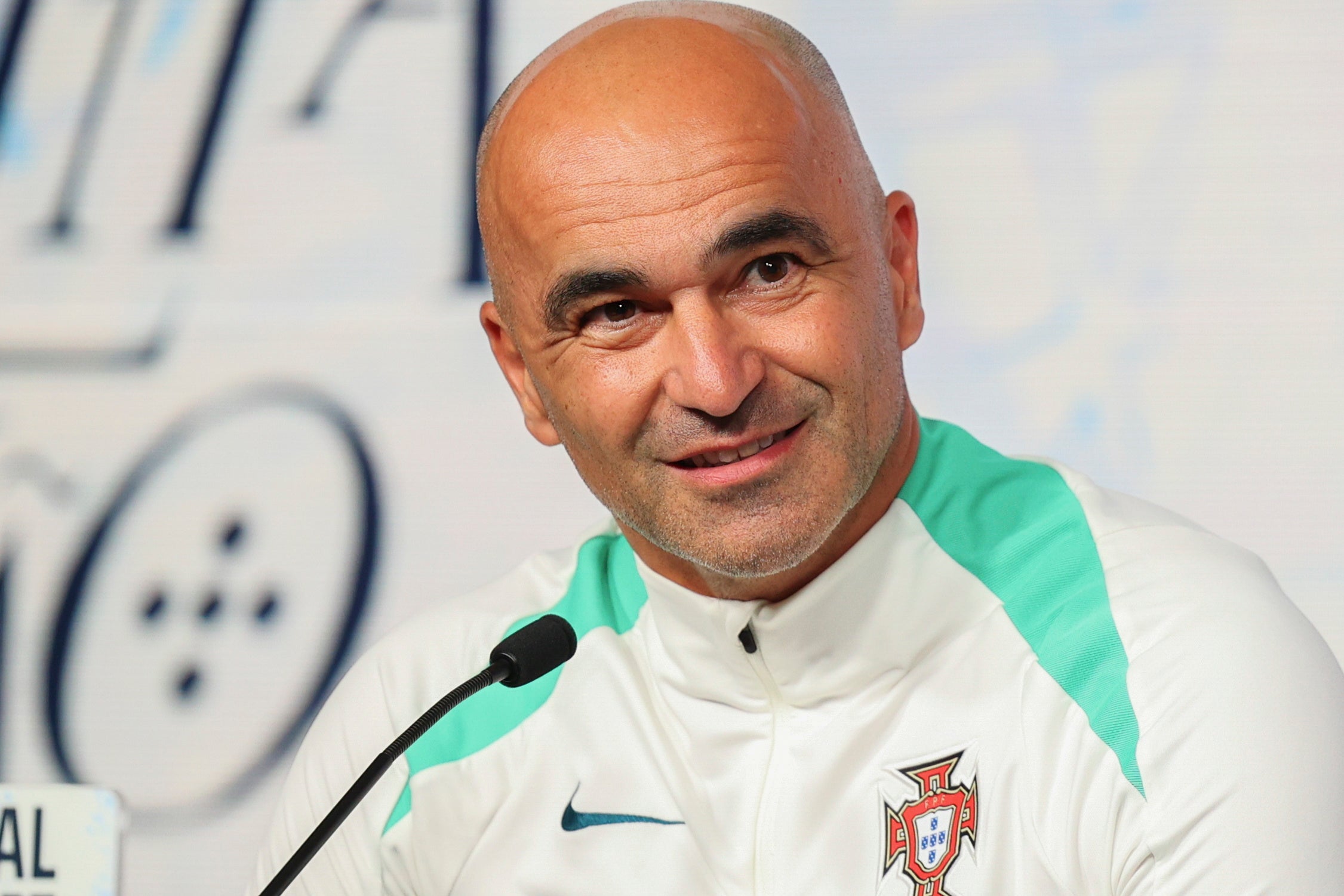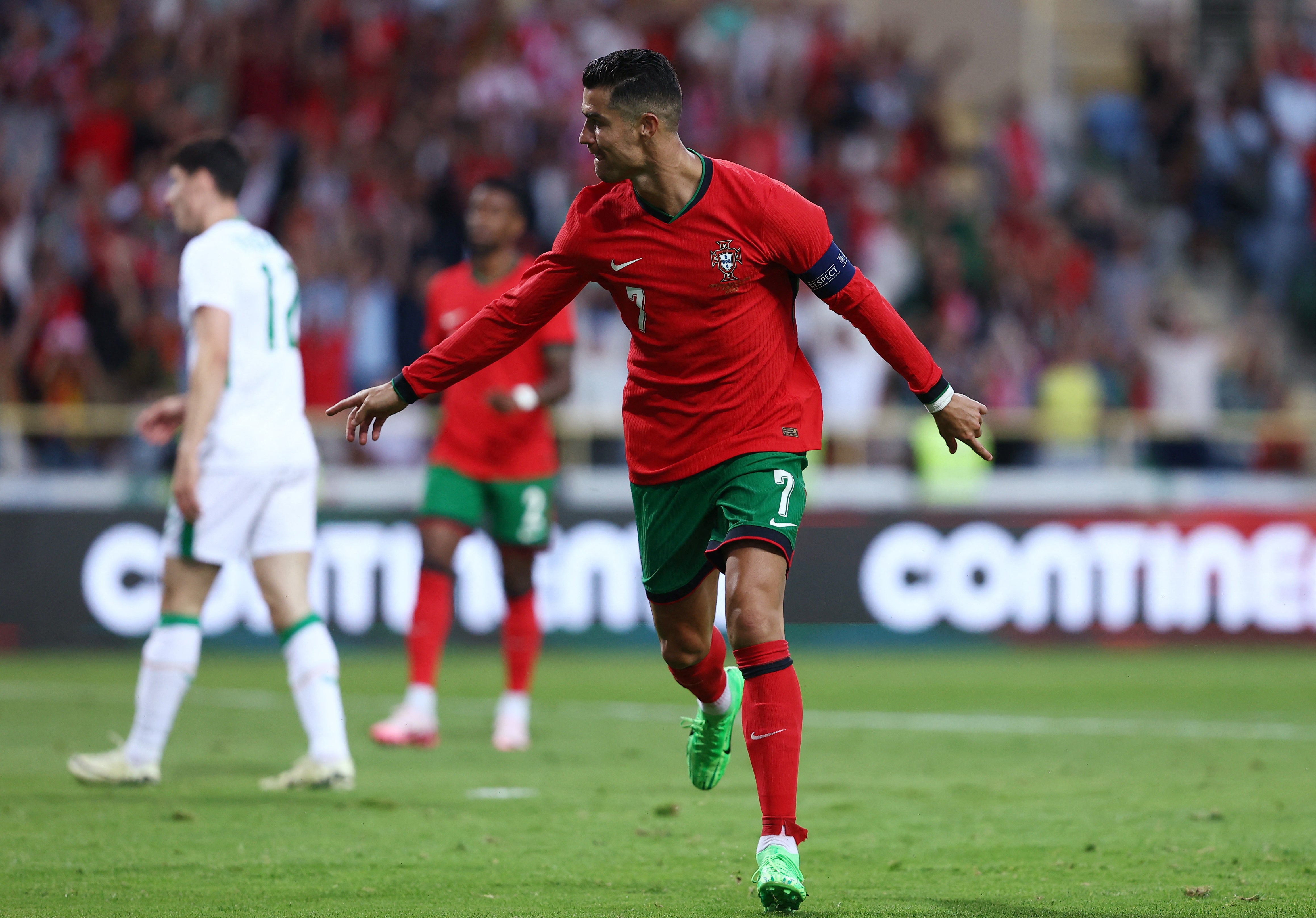How Portugal’s unexpected decision with Cristiano Ronaldo made them huge Euro 2024 contenders
Roberto Martinez opted out of following predecessor Fernando Santos’ path with the record goalscorer

Your support helps us to tell the story
From reproductive rights to climate change to Big Tech, The Independent is on the ground when the story is developing. Whether it's investigating the financials of Elon Musk's pro-Trump PAC or producing our latest documentary, 'The A Word', which shines a light on the American women fighting for reproductive rights, we know how important it is to parse out the facts from the messaging.
At such a critical moment in US history, we need reporters on the ground. Your donation allows us to keep sending journalists to speak to both sides of the story.
The Independent is trusted by Americans across the entire political spectrum. And unlike many other quality news outlets, we choose not to lock Americans out of our reporting and analysis with paywalls. We believe quality journalism should be available to everyone, paid for by those who can afford it.
Your support makes all the difference.When Roberto Martinez first took the Portugal job in January 2023, in a move that wasn’t exactly universally celebrated, there was one source of tension weighing over everything. The Catalan was expected to make the final decision on Cristiano Ronaldo's international future. Predecessor Fernando Santos had already started the process by leaving the Portuguese great out of the 2022 World Cup last-16 thrashing of Switzerland, with Ronaldo then decamping to the Saudi Pro League, which should have made the decision even easier.
It instead made what happened next all the more surprising. There was no tension between Ronaldo and Martinez. The new manager kept him in the squad, but also further integrated him into the team. While there had been a feeling that Martinez might be creating a huge problem for himself, it has instead proved the opposite. It’s been a non-issue, with Ronaldo remaining a productive player.
He scored 10 goals in qualifying, but that was as a part of a supremely talented team rather than the focus of everything.

It’s all been so fluid and seamless, to the point Portugal won every single qualification match and are now viewed by virtually every squad at Euro 2024 - including by the team themselves - as potentially going straight through and winning the tournament. Gareth Southgate and Didier Deschamps are wary. Through that, Portugal may not just become winners of the European Championship again but also something else distinctive to the competition’s history.
They may be that team that suddenly arrives at the tournament at an opportune moment, in the right form and frame of mind to seize the moment and the trophy. The Euros actually have more of a modern history of this than the World Cup, most recently in defending champions Italy.
It should be acknowledged there is more to Portugal than that, though, especially as this squad looks so much better than their own 2016 winners. As sudden as the team’s rise to the level of long-time favourites like England and France feels, it's also been a more gradual process over years. Portugal have been one of the finest producers of football talent for decades. The relative return has been sensational, as the culture represents an admirable smaller-scale version of the three great global talent wells of south London, Sao Paulo and Paris.
A confluence of factors have come together to especially amplify this 2024 team, from demographics to investment and the manner that the three big academies of Porto, Sporting and Benfica have honed their development structures. That has resulted in a squad that has another real talent ready to step into every position next and almost one generation ready to replace the next. Behind a group of stars in that crucial 26-29 age bracket, such as Ruben Dias, Joao Palhinha, Bruno Fernandes and Bernardo Silva, there are already Goncalo Inacio, Antonio Silva and Joao Neves. Remember the names.

That has in turn been perpetuated by an evolution in Portugal coaching, that is arguably an even more successful export culture than playing talent. The country’s best managers are now a long way past the more responsive and defensive organised approaches of Santos and Jose Mourinho.
There is a real tactical vitality to those like Ruben Amorim and Flavio Conceicao. This has aided the development of young players, who are given plenty of opportunities by Primeira Liga clubs, while also making them so adaptable. Portuguese teams have become so tough to play in Europe, especially in terms of the physical battles. It is similarly rare you see one of the country’s talents struggle to adapt. They are almost “plug and play”, because they have so much about them. That’s now the level of education Portuguese players get.
Even Joao Felix persevered for so long at Atletico Madrid despite representing a totally different profile of attacker to what Diego Simeone wanted.
That touches on how the influence of Martinez has been important, too. One of the reasons that his appointment was met with a lukewarm response was because of how strong Portugal’s coaching culture is. It is one of those countries that probably shouldn't have to look abroad, and there was a feeling they would only look to Mourinho. Martinez obviously hasn’t had the current Fenerbahce manager’s career, but that fed into a sense that he is very far from an elite coach.

This is another quirk of international football, though, and precisely why Portugal’s best coaches instead go to the club game. It is not like national federations can afford elite managers. Pep Guardiola and Jurgen Klopp aren’t here. Martinez stands out at Euro 2024 as one manager who has done more than most in the club game, just at the level below the elite.
The perception that his Belgium under-performed isn't really shared among international managers, either. They probably did as well as they could at 2018, only getting defeated in the semi-finals by the best team in the world in France. The quarter-final victory over Brazil, who had been favourites, is meanwhile viewed as a masterclass.
There was still always a question about the defensive structure, which perhaps cost Belgium at Euro 2020. They again came up against the eventual champions, in Italy, at the quarter-finals. It’s just as well defence is one of Portugal’s great values. That explains why Martinez has so far implemented what might be termed as a “stylised pragmatism”. The team plays a more expansive possession approach, that does fit with so much of the fine talent they’ve got, but on top of this solid core. It’s a marriage of Martinez’s own ideas and the existing qualities of the players. Pepe is still in the squad at 41, greatly contrasting with some of the youngsters but only furthering this sense of balance.
There is even something more measured around Ronaldo.

While there is immense respect for such a historic icon, the squad don’t talk about him with rote answers as if they're in a cult in the way some used to criticise. It’s more of a healthy appreciation. By the same token, more of the play now goes through Bruno Fernandes. He conducts, spreading it out to Bernardo Silva, Joao Felix, Rafael Leao, Diogo Jota… and Ronaldo, with more behind.
It is one of the strongest squads in the competition. That’s why it’s now being seen as potential winners of the competition, maybe beyond anyone else. At the moment, there's no tension about the team. There's a good chemistry. The real test for that might be when expectation properly rises.
Portugal have been here before - but not quite like this.
Join our commenting forum
Join thought-provoking conversations, follow other Independent readers and see their replies
Comments